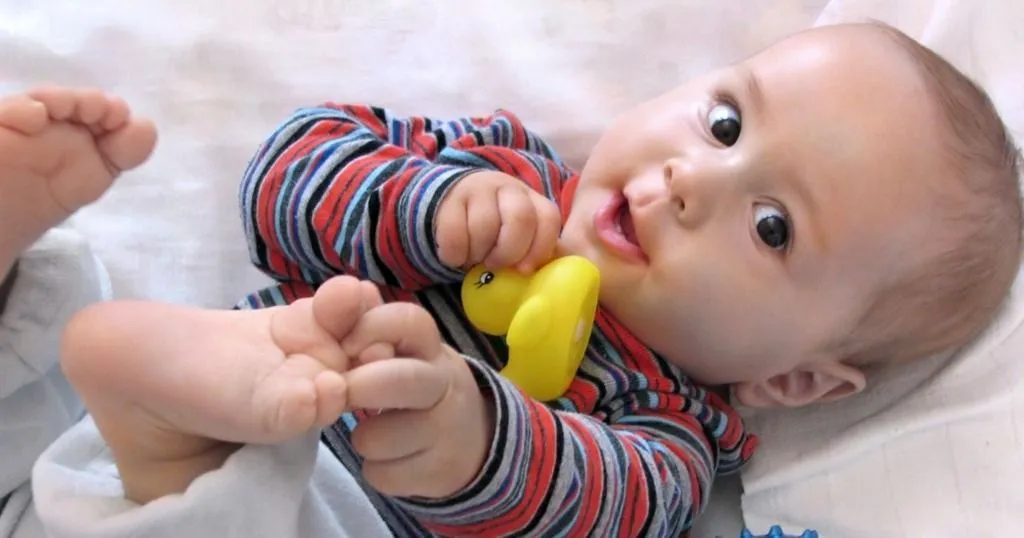Research examples of developmental psychology
When you are studying developmental psychology, you’re studying how people grow and develop, all the way from childbirth to the end of their lifespan. What are examples of developmental psychology?
Posted by
Published on
Fri 19 Jan. 2024
Topics
| Adolescent Research | Child Development | Developmental Psychology | Infants | Older Persons |

When you are studying developmental psychology, you’re studying how people grow and develop, all the way from childbirth to the end of their lifespan. What are examples of developmental psychology? It could be anything within a range of subject matters that are related to human growth. Not just psychological behavior, but anything from thoughts and emotions, cognitive and linguistic development, to decision making and motivation, moral and even physical development like motor skills.
Research examples of developmental psychology
Over the years we’ve come across many examples of research in developmental psychology, often done with various behavioral research tools. Are you looking for topics for developmental psychology research papers? We’ve put together an overview of research examples in developmental psychology that were published on the Behavioral Research Blog.
Table of contents
Examples of developmental psychology: Infant stage
The infant stage is the time from birth until children are (roughly) two years old. A time that has been well studied by researchers, as changes are rapid and these first years in life are considered fundamental in our development.
Early infant behavior development of hand preference
In learning about objects and their parts, transporting objects to new locations, and sharing objects with others, the hands are essential. Infants discover how to control each hand and how to use the hands together.
There are many reasons to study the development of hand preference in infants, as it can provide clues about motor skills or any developmental disorders. A team of researchers was particularly interested in asymmetric bimanual actions and presented “Unimanual to bimanual: Tracking the development of handedness from 6 to 24 months”.
Read the full post here: Early Infant behavior development of hand preference

In the Noldus Webinar 'How emotions are made in Baby FaceReader', we tell you about emotions, how they are 'made' and how this relates to facial expression analysis in FaceReader with a focus on Baby FaceReader.
Observing and analyzing repetitive movements in infants to detect autism
In the first year of life, an infant learns how to use his or her arms, legs, mouth, hands, and fingers by repeating movements over and over again. They discover a wealth of possibilities. However, an increased frequency of repetitive movements has been widely described in neurodevelopmental disorders as well.
To examine if a specific repertoire of repetitive movements was present in children with autism, researchers used home videos to code the behaviors of the infants.
Continue reading: Observing and analyzing repetitive movements in infants to detect autism
Gaze behavior in infants
Infant siblings of children with or without ASD participated in a study to determine whether gaze behavior, showed during a test with an unfamiliar examiner, could predict gaze behavior in a more naturalistic context. The team of researcher Gangi examined prospectively infant gaze behavior at 6, 9, and 12 months of age in infants who were later diagnosed with ASD, as well as low- and high-risk infants without autism spectrum disorder outcomes.
To measure the cognitive functioning of the infants, the Mullen Scales of Early Learning was filled in at each visit by an examiner. Meanwhile, infant gaze to the examiner’s face was recorded, and play interaction with a parent took place.
Read the full post here: A closer look at eye contact

Understanding infants’ social and moral development
At the Centre of Infant Cognition at UBC in Vancouver, researchers conduct independent studies as well as participate in ManyBabies projects to further understand the development of moral and social behaviors of infants.
Discover the full story here: Understanding infants’ social and moral development
Developing social communication and the role of mimicry
Children learn from interacting with others, especially their parents. For example, reproducing the emotions that others express is part of that. Copying facial expressions is one of the great milestones in the social development of a child.
Still, little is known about the mechanisms controlling the early development of emotional mimicry. Therefore, a research team of the University of Amsterdam conducted a study to investigate infant emotional mimicry, parent-infant mutual attention, and parent dispositional affective empathy.
Read more about this study here: The role of mimicry in the development of social communication
FREE WHITE PAPER: Tools for infant studies
Learn more about the software tools available for infant studies.
- Capture behaviors with video
- Annotate behaviors accurately
- Unobtrusive emotion analysis
Adolescent stage
Adolescence is the period of transition between childhood and adulthood. It is a time for rapid cognitive development. When entering adolescence children are going through many changes at the same time: both physical and intellectual, as well as their personality and social skills that are developing. We’ve published several articles about studies into the adolescent stage.
Direct observations help develop effective interventions in adolescence
In a study by a team of researchers from Arizona State University, John Hopkins School of Medicine in Baltimore, Maryland, and the Oregon Research Institute, family and friendship dynamics in adolescence were observed in order to develop more personalized interventions that prevent problem behaviors and adjustment issues.
Continue reading about effective interventions in adolescence.
Dealing with depression in adolescence
In adolescence, the ability to regulate emotions is heavily challenged by numerous biological, social, and psychological changes. How are adolescents’ emotions socialized by mothers and close friends? A study by a team of researchers from Canada and The Netherlands focused on dealing with depression in adolescence.
Continue reading: Understanding adolescent emotions
Studying conflict interactions between mothers and adolescents
Adolescence is a developmental phase with many physical, neurodevelopmental, psychological, and social changes. It is common for conflicts to arise between adolescents and their parents. However, severe conflicts can have negative effects on adolescent development. What can parents do to prevent escalating conflicts?
FREE WHITE PAPER: Parent-child interaction
This free white paper informs you how on to facilitate a parent-child study and how to set up your experiment.
- Perform tests in a lab or in-home
- Collect data with video
- Design a coding scheme
Read 5 more examples of research in adolescence here >>
Research examples in developmental psychology research: Adult stage
Adult development encompasses the changes that occur in biological and psychological domains of human life from the end of adolescence until the end of one's life1. When studying adult development, many researchers tend to focus on aging and health.
Some study eating behavior in residential care homes which enables them to take environmental factors into account. Others focus on family relations and communication and try to facilitate and improve contact between parents and children living a distance apart. Some examples of developmental psychology research in the adult stage of life.
How to measure couple communication patterns
Communication between husbands and wives is often discussed on TV, in magazines, and is frequently a topic of discussion amongst friends. Additionally, it is also a popular research theme. Effective husband-wife communication can benefit a relationship. But are there specific behaviors which need enforcing and are they the same for every couple?
Read more: How to measure couple communication patterns
Measuring flow
Flow is a state in which a person is fully involved in an activity, decreasing self-consciousness and sense of time. This process requires a person to be extremely focused, as well as exactly have the skills to master a task. Several researchers have developed methods of measuring flow.
Find out more: Measuring flow
MEASURE YOUR EMOTIONS: What does your face say?
Curious what emotions your face shows? Upload a photo here, and our FaceReader software will test it for emotionality.
- Enter a url or browse for an image
- Use passport photo like pictures
- Make sure that the pictures you upload are the best they can be
Do your emotions and moods change as you get older?
Are emotions affected differently for younger than for older people? Researchers used FaceReader to complement self-assessments and objectify mood changes to answer this question. They exposed participants to film segments to induce four basic emotions: anger, disgust, happiness, and sadness.
Behavior and emotions of older adults
It's important to develop user-friendly products and services to assist older people in daily activities and improve their quality of life. Therefore researchers wanted to find out if TV footage could motivate older persons to start being more active? Being active can improve the overall health of a person (65+ but of course also 65-!).
Read the full blog post on research projects on behavior and emotions of older adults.

On-site observational studies with older persons
In certain cases, observations for your study are best performed on-site. There are many examples of observational studies with older age groups, conducted at home or at a healthcare facility. We've highlighted two examples of on-site observational studies with older persons.
Robots helping people with dementia
Behavioral and psychological problems affect most individuals with dementia at some point during the progression of the disorder. Researchers explored if the use of a robotic seal as a therapeutic tool would influence the emotional and behavioral symptoms of dementia.
Find out more about this large study on robotic pets here!
RESOURCES: Read more about The Observer XT
Find out how The Observer XT is used in a wide range of studies and how it can elevate your research!
- Free white papers
- Customer success stories
- Featured blog posts
More topics in developmental psychology research
Of course there are many more topics in developmental psychology. An overview of the research topics can include:
- Cognitive development: Piaget's theory, information processing, and language development
- Social and emotional development: attachment theory, moral development, self-concept and identity formation
- Physical development: motor skills, sensory development, growth and maturation
- Perceptual development: visual perception, object permanence, perceptual constancy
- Personality development: nature vs. nurture debate, temperament, self-esteem and resilience
- Contextual factors in development: the role of culture, family, peers, media and technology
- Adolescent development: puberty, identity formation, moral reasoning and decision-making
- Lifespan development: aging, retirement, end-of-life issues
- Education and development: learning theories, early childhood education, motivation and engagement in school
- Neurodevelopmental disorders: ADHD, autism, or dyslexia.
These articles might interest you as well:
Related Posts

The role of inhibitory control on substance use in adolescence

Facial mimicry and social cognition in children with autism spectrum disorder
